#chinese study notes
Explore tagged Tumblr posts
Text
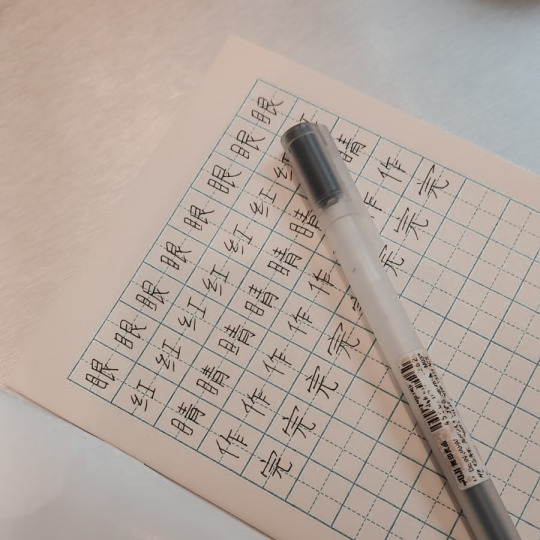



080724
yesterday i went to milan to see my friends, originally i had to go to see a studio flat but since i don’t even know if i will need it the the landlord has other people who are inter i cancelled the visit and just hang out with my friends.
during the train ride i studied a little chinese and did some research for job hunting in the field i’m interested, think i will do a notion page where i analyse job and the skills they require so i know what to focus on, i already noticed that i really need to invest in learning chinese since i found more than one job as a product designer that asked as an additional language chinese or german so i think after i return from holiday i will search for a chinese teacher, this way i will learn faster and really see if i’m making real progress. if any of u know a good website/app where to find a teacher please let me know!
now i’m waiting in a cafe for a friend and studying a little chinese.
#studyblr#studying#study motivation#student#studyspo#100 days of productivity#design student#studyspiration#notes#chinese#chinese langblr#chinese language
284 notes
·
View notes
Text

大家好!
I'm study Mandarin Chinese already 3 months and thought that it will be cool to try capture my progress in it with some cute study blog.
Maybe someone will catch some inspiration in it and start to learn new languages too? Who knows.
Wish you good luck with all your work and studies!
Happy holidays!
#study blog#study aesthetic#study motivation#studyblr#studyspo#language#Chinese#mandarin#汉语#中文#calligraphy#notes#learning#learnlanguages#learn chinese
129 notes
·
View notes
Text
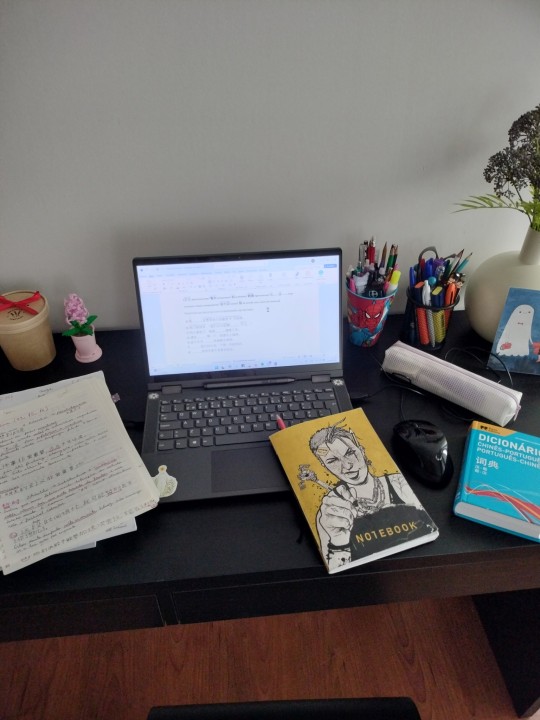

June 23rd, 2025
I'm alive, unfortunately. Don't you just love exam season?
#I'm alive but am i...#studyblr#studyspo#academia#languages#study motivation#study aesthetic#studying#study notes#study inspiration#mandarin#chinese langblr
31 notes
·
View notes
Text

a page from mj 182's sketchbook. past a certain point, there seem to be many more drawings of someone called mony
#incredibox#incredibox fanart#toochi art#incredibox v9#wekiddy#incredibox downtown#yes i ship mj n blessed mony my friends and i call them blessed star#also mjs a really good artist to me#chinese notes cause hes studying it cause monys chinese to me alright#and alien language cause hes an alien okay crawls back in hole
25 notes
·
View notes
Text
ʚ Chinese Emotions Vocabulary ɞ

1. 生气 (shēngqì) (╬ಠ益ಠ) - Angry
2. 害怕 (hàipà) (⊙﹏⊙✿) - Scared
3. 哭 (kū) (╥﹏╥) - Crying
4. 紧张 (jǐnzhāng) (; ̄Д ̄)- Anxious
5. 害羞 (hàixiū) (⁄ ⁄>⁄ ▽ ⁄<⁄ ⁄) - Shy
6. 困惑 (kùnhuò) ( ̄□ ̄」) - Confused
7. 高兴 (gāoxìng) \(≧▽≦)/ - Happy
8. 好心 (hǎoxīn) (っ´ω`c)♡ - Kind
9. 激动 (jīdòng) (((o(゚▽゚)o))) - Excited

#langblr#study blog#studyblr#study motivation#study notes#langblog#language#study time#learn chinese#chinese#Chinese vocabulary#vocabulary#vocab#ch#learn mandarin#mandarin#chnotesbyvi
29 notes
·
View notes
Text


"50-10-50"📌
The ‘50-10-50’ rule, which will help to allocate time wisely even for those who fail all deadlines ‘50-10-50’ is a method that tells you how to wisely distribute your time and manage to do everything on time. It implies that you will spend 50 minutes of your time on work, after that you will change your activity for 10 minutes, and then, after a rest, you will return to work for 50 minutes. If your work is computer-related, then during the rest period let your eyes relax not only your brain but also your eyes: take a walk, drink tea or chat with a colleague. Don't just switch to your phone and immediately check email or social media. Try to really relax, not just sit for 10 minutes, staring at your phone or laptop screen, but no longer on work. The cycle of ‘50 minutes of work - 10 minutes of rest - 50 minutes of work’ can be repeated as many times as you need to complete a task. This is one of the most effective ways to tackle it. Why the method works Working hard until you feel overly tired is like running a marathon, where you run for a few kilometres at maximum effort and then collapse. In addition, the more you work on a task, the more rest you think you deserve. But it is not always possible to devote 2-3 hours in a row to relaxation. In any business it is important to distribute your strength and give yourself a rest. And the ‘50-10-50’ method helps to achieve this. In addition, studies show that after small breaks during the day the productivity of a person increases. And simply moving more often is healthier than sitting in place for hours on end. Key benefits One of the students who practises this method in his studies spoke about its 5 main benefits:
When you think of having to spend 6-8 hours on a single task, you may get discouraged. But 50 minutes is better. 50 minutes of work is less than the length of a one hour episode of your favourite TV show. And you could spend 6 hours to watch 6 episodes, but you probably wouldn't watch one 6-hour episode. That's why it's worth taking breaks from work as well, because then the thought of it doesn't depress you. As a result, you will develop stamina: within 50 minutes you will feel alert and work efficiently.
The method allows you to focus better on your work. You realise that you have 50 minutes and it would be better to have already solved some task or part of it in that time. So put your phone aside, log off social media and ask your colleagues or housemates not to distract you. Only react to the alarm clock that will inform you that 50 minutes have passed.
Taking regular 10 minutes off allows you to increase your productivity in something else. During this time you can do anything you've wanted to do for a long time but never had time for: hone your writing, draw, sing or charm your colleagues with your sense of humour.
The ‘50-10-50’ method allows you to determine exactly how much time you spent on one task. As a result, you will be able to plan your working hours better and use them more efficiently in the future.
The method allows you to develop your skill. Studies of the late XX century state that a person needs 10 thousand hours to become a pro in a highly competitive highly specialised field. The ‘50-10-50’ method allows you to look back and calculate how much time you have already devoted to becoming a professional in your field.


#my day#blogger#unidays#biology#diary#science#real life#university#study motivation#study blog#student life#chinese studyblr#stem student#stem academia#student#stemblr#study aesthetic#study community#study inspiration#study hard#study inspo#study notes#study tips#study buddy#study#study space#studyblr community#studygram#studyblr#studyspo
28 notes
·
View notes
Text
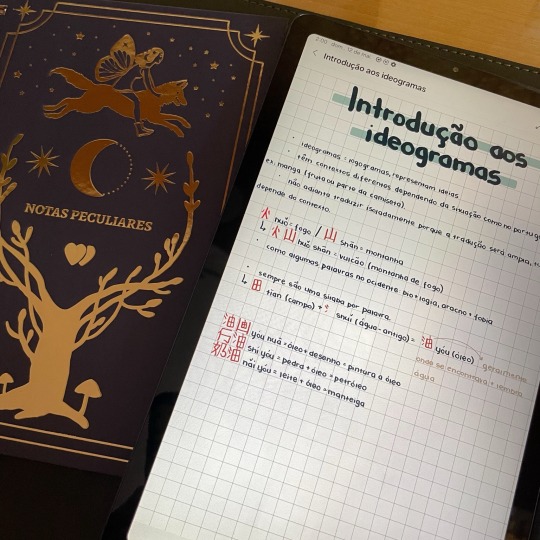
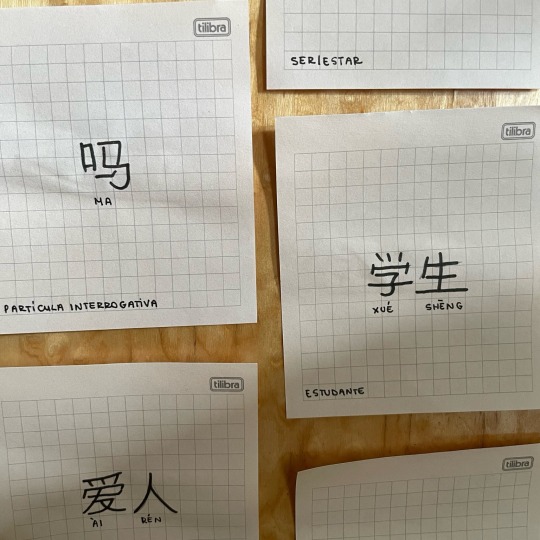
sunday. may 12th, 2024 // today, I transferred my notes from the introduction module on chinese ideograms to my tablet (I was super anxious waiting for it to arrive!!). at least on it, my ideograms look less ugly :’) I plan to continue later if my morning medication doesn't make me sleepy. after three years, I am finally studying chinese mandarin again (and for real this time).
#jiabei’s study log ★#studystudystudy#studyblr#study#studyblr community#study blog#studying#study notes#study space#studyspo#langblr#chinese langblr#study inspiration#study aesthetic#chaotic academia
55 notes
·
View notes
Text

easy to remember hiragana
#and ° . what was it called...im in bed i dont wanna google or get up#to read my notes#anyway just know i made a joke to myself that the na's skipped it and gave their#puyo puyo#puyo sig#im studying but not very hard;; on や but still havinf trouble remembering た&は so...vry bad of me i know;;;#anyway!! む is a nice charcter flows nicely. な is fun too#i thought i wouldnt like it cause i dont like how i write すits ugly and bad and not even “cute”#not even strong like a flag pole...my す is no good#my て is pretty cute tho. very round :) (maybe more than it should be ngl)#last thing but i think i get the “your mother is a horse” joke from a learning Chinese post#like i actually kinda get it its cool#also the naming conventions. i mean i didnt get it at first i just accepted it as a thing but actually reading about it makes ya go#“oh! like im robin. and im robyn with a y”#“im shu spelled with the kanji for horse.” “im mio. spelled with bearing fruit and center.”#i get it now i get it#oh ふ looks like an old guys nose#im also.not good at it (shamful i know;;;; )#also why does は have extra stuff. what was it called. the to ha's which is why they have the ° .#mmmm good old sleepy....why was i up so early i did have work today...i need a nap...a bed nap..#snork mimimimimi#gn
22 notes
·
View notes
Text


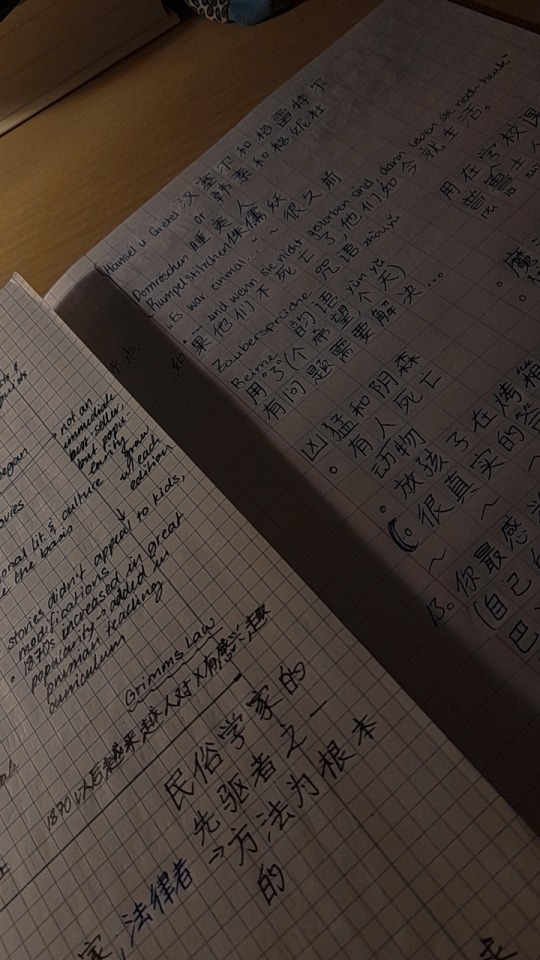
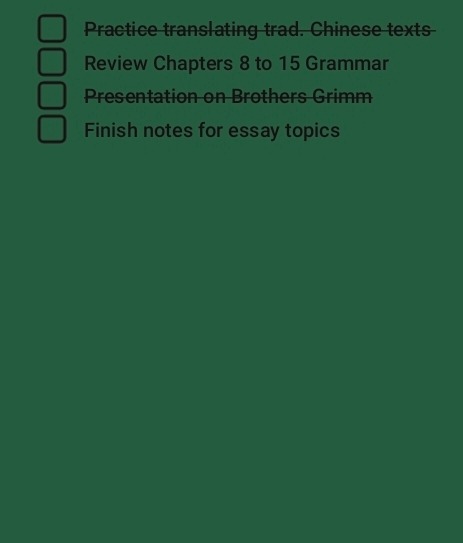
Lemme just say...bruh.
I'm not 100% confident that I will pass my exams just yet but I still have a couple days and am gonna try and stay optimistic. We did a practice exam and it didn't go as bad as I expected,,so that's a small win for now. Honestly can't wait until this is over,,,<3
#study blog#studyblr#university#chinese studies#student#student life#learning languages#study motivation#languages#mandarin#i hate exams#exam season#exams#study notes
39 notes
·
View notes
Text
【哪吒之魔童闹海】破亿海报英译:58亿
【Nezha 2】 Box Office Milestone Poster Translation: 5.8 Billion

From top to bottom:
中国影史票房冠军 -> Chinese Cinematic History's Box Office Champion
58亿 -> 5.8 Billion
Text:敖闰侄 -> Ao run zhi (orange)
哪吒: 他们为啥说你 / 是个橙子?-> Nezha: Why are they all calling /you an orange?
学习不止 快乐不断 -> With lifelong learning, comes lifelong happiness

Suggestions on the translations would be appreciated as I work to improve my Chinese. I would also love to read/discuss other interpretations ☺️
Project Overview | 1 | 2 | 3 | 4 | 5 | 6 | 7 | 8 | 9 | 10 | 》
#哪吒之魔童闹海#nezha 2025#试一试翻译#So the joke is that 敖闰侄 means “Ao Run's Nephew” but the transliteration of the title sounds like “orange” to anyone that knows English#The closest approximation I can make to explain the pronunciation is “ow-ran-jeh”#with the “jeh” sounding like the “g” in “giraffe” or IPA [ʤɪ] according to the Cambridge dictionary#And 哪吒 who is not very studious but knows English(?)#–Anglo-saxons canon in the Nezha-verse–#is under the mistaken impression that people are calling 敖丙 an orange online and snidely remarking to him about it#I do not browse Chinese social media so I wonder if this is a actual meme#I did not see any results pop up in firefox though#And then as a transparency note#The set of phrases would more directly be translated as “with constant study comes constant happiness”#But I used the concept “lifelong” instead to give it a more pithy tone#which seems to have become something a contronym in recent usage haha#project fireball#火流星项目
4 notes
·
View notes
Text


August 17, 2024
Back on langblr with some simple swahili vocab! I managed to keep my Duolingo streak for two weeks so far, alternating between Dutch, Swahili, and Danish. So far, so good!
#studyblr#study blog#langblr#swahili langblr#study motivation#studyspo#study notes#study aesthetic#kiswahili#danish langblr#dutch langblr#language learning#just noticed I wrote “Chinese” in English for no real reason
7 notes
·
View notes
Text


happy 2025 to everyone!
life has been difficult lately but i hope the new year it will be better. recently i started working as a waitress full time to save as much money as i can for a master to see if this year (or maybe next considering early the deadline for applying to uni in the uk is so close compared to the italian one) i can make it. because of this i didn’t have a lot of time to study or focus on myself since right now money is more important.
anyway here are my (study) goals for 2025
reach hsk3
pass hsk1 exam
pass hsk2 exam
re-learning korean (i will not put any level to reach because i just want to do it for fun so anything will be fine for now)
improve my english (especially my writing)
as for the more design study goals
learn blender
do a course about design and innovation patents (idk how to transla it better in english sorry)
make a good portfolio (web and pdf)
learn java
improve my drawing skills
read 20 articles of design journals
write an article about a design topic (i want to learn how to write articles like academics because i would like in the future do a phd if i have tha chance, time and money)
how is your 2025 going so far? what are your goals?
#studyblr#studying#student#study motivation#studyspo#100 days of productivity#design student#notes#studyspiration#chinese
42 notes
·
View notes
Text

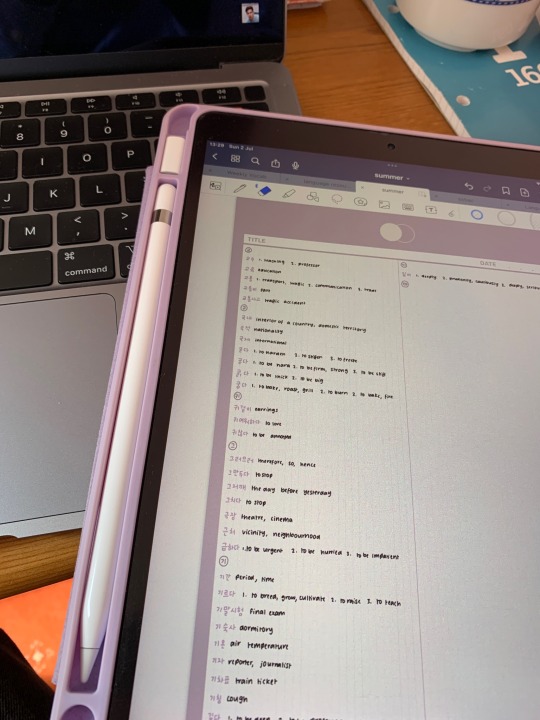
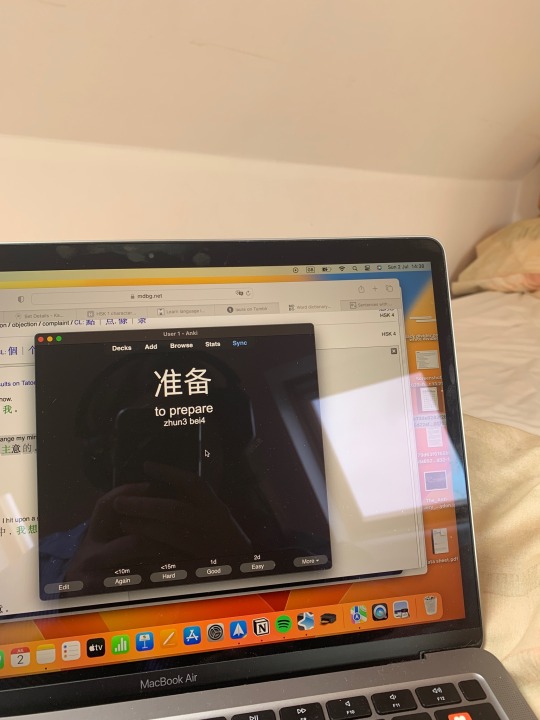

2023.07.02
two walks + lotsss of vocab study <3
63 notes
·
View notes
Text
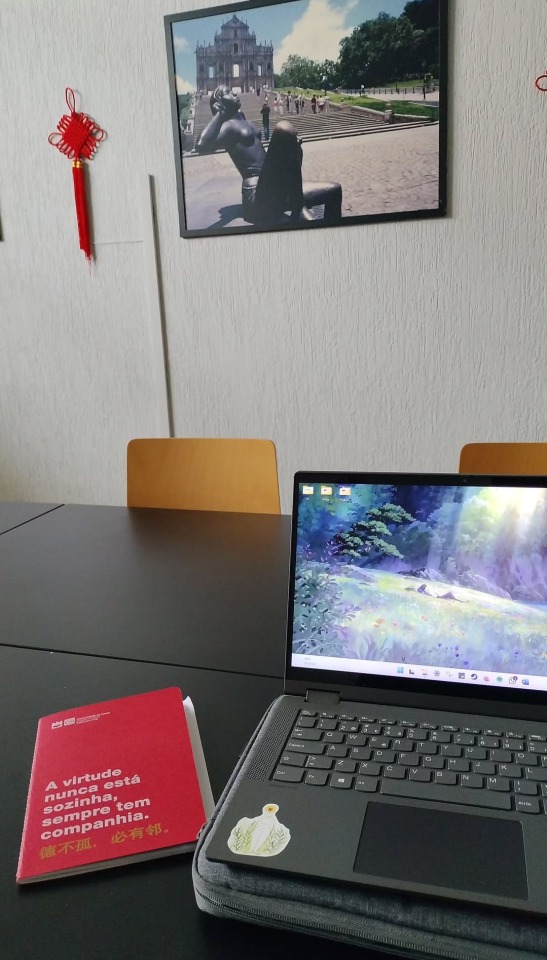
Internship
Totally failed at making a post about my internship!!
I ended it a while ago and I already turned in and presented my report, it all went really well actually!! Made me excited about the future.
I mostly translated children's books, did a few social media posts, wrote some articles...it was really fun and I'm so glad I got to have this experience since literary translation is my dream job. Very thankful! I definitely got the best internship lol.
I did have a bad interpretation experience during it but everything turned out fine and I learned valuable lessons for the future. Sometimes shit happens 😋 but it's kinda freeing having the "worst" happen and realize that things move on.
#internship#studyblr#studyspo#academia#languages#study motivation#study aesthetic#studying#study notes#study inspiration#mandarin langblr#chinese langblr#chinese#college#University
6 notes
·
View notes
Text
audio study methods
Still working on that 'lazy' study plan post, since I am just not satisfied with any chinese grammar guide summaries online enough to recommend them as a small grammar intro. If anyone knows of any good 'grammar overview summary' articles or sites for chinese grammar, please let me know. (I like AllSetLearning's Chinese Grammar Wiki but it is huge and in depth and not something I'd recommend a learner 'just read through' on month 4 of learning, and the grammar guide summary site I used as a beginner that was very easy to read through in a few hours... no longer exists)
So in the meantime. Not a grammar study tip, but a general 'lazy' option for language learners who (like me) can't focus on stuff like anki, or just don't want to. I go more in depth about using audio lessons and audio flashcards on other posts, and on the lazy study plan post i'm drafting, but the short of it is: you can listen and learn while doing your normal daily activities. That's what makes the study method so convenient. You don't have to squeeze in any extra time, or change your daily life schedule to make time for chinese, to use audio lessons and audio flashcards.
You simply find some times during the day when you'd either normally listen to audio in the background (like if you listen to music when commuting or shopping, or if you listen to podcasts when working, or if you listen to youtube while exercising or browsing social media). As usual, the more time the better as you'll make faster progress if you study 1-2 hours a day or more. But anything is better than nothing. So lets say you commute to work 30 minutes in morning and evening, there's your hour of studying audio. Or you go for a walk at lunch for 15 minutes, and browse tumblr for an hour scrolling (that's 1 hour and 15 minutes of study). It's very easy to fit 30 minutes of audio study into a day, and it's fairly easy to fit even 2-4 hours of audio study if you're so inclined. I usually do 30 minutes - 2 hours of audio study some days, since when I walk I decide if I feel like listening to a youtube essay or chinese or japanese stuff, when driving I decide which I feel like listening to, and I want to listen to something in english 2/3 of the time.
How do you use audio study material? Well, the easy way is you just press play on it, let it play in the background while you do other stuff, and that's it. If you tend to avoid studying new stuff (like me), then I recommend PRIORITIZING listening to NEW AUDIO every time, until you get into the habit of listening to NEW stuff to learn. Then you can re-listen to stuff sometimes, as review, especially when you're doing activities you have less attention on audio during. So for example: you'd listen to new audio on the commute or when walking (when you can mostly focus on what you're hearing), and then re-listen to audio as review while working or scrolling tumblr and reading english (activities where you pay more attention to other things besides audio).
What can you listen to?
There's audio lessons - which would be something like ChinesePod101 (Immersive Language Chinese in the Hoopla library app), Coffee Break Chinese, youtube videos where teachers talk in english and explain chinese as they teach it. These are good for study material, because you comprehend what you're learning due to the english explanations of every word and grammar point you hear. These are good for beginners, because you will understand everything you're listening to, and learn new words and grammar, thanks to the explanations. The drawback with audio lessons is they require the most focus.
There's learner podcasts like TeaTime Chinese and Slow Chinese, these are more often ENTIRELY in chinese. So these are better for practicing comprehension of stuff you've studied elsewhere, rather than for learning new things. You can learn new words and grammar from these, but if that is your goal then re-listen to learner podcasts a decent amount (5-20 times or more until you can't guess/figure out any more word meanings).
There's audio flashcards (which I love). These are sentence audio in english, then repeated in chinese. The order may vary, the chinese may be repeated more than once. These are good for beginners and upward, because you get a translation of every single thing you hear in chinese. You can pick up new words and grammar from audio flashcards. Audio flashcards require less focus than audio lessons, because you can learn from sentences while you pay attention and then if your attention drifts you can just focus again to the next sentence you hear and continue learning. The drawback is there are no explanations for which word specifically translates to what, some translations are not literal, and there's no explanation of why the grammar is the way it is. Audio flashcards require the listener to try and guess what means what by exposure to chinese sentences and their translations. So it's harder than audio lessons in terms of explanations, but easier than learner podcasts. Audio flashcards are the best substitute for traditional flashcards or SRS apps like anki, if you're trying to improve your vocabulary by hundreds of words ASAP. Audio flashcards are dense with new vocabulary (usually 1 new word or grammar point per sentence you can learn), so you'll learn more words than you would with an audio lesson that is paced slower with more english explanations or a learner podcast which would ideally be mostly words you know and only 20% or less new words.
There's Spoonfed Chinese Anki audio files (which I recommend since these start out very basic and increase in difficulty while also repeating words a lot so you can review, they're shared on reddit if you search, or ask me), if you search 'chinese english sentences' on youtube or bilibili (i've done this with chinese japanese sentences on bilibili) you'll find videos like this where you hear audio english then audio chinese. Old glossika cd files are basically this structure as well, which you can find the audio files of for free online or free in libraries (I'm using the new glossika app for japanese but I'm hesitant to recommend the modern app courses as there's significant errors in japanese so I'm not sure how good/bad the chinese one is). If you're a beginner, then the audio flashcard material you pick won't matter much as you need to learn a few thousand common words first which will be in most materials you find. But if you're an upper beginner, you may wish to prioritize finding audio flashcards with MORE unique words, more sentences, or may want to transition to using learner podcasts more for new vocabulary. If you aren't running into at least one new word for every 5 sentences you hear in audio flashcards (and ideally one new word for Every sentence), then that audio flashcard is way too easy for you and you know enough words to move onto new study material.
Audiobooks and audio dramas - use these like learner podcasts, listen to ones you can comprehend the main idea of, and then re-listen until you can't guess/figure out any more new words. If you're not very good at listening comprehension (like me lol), then you may want to listen to a given audiobook/audio drama file 3-5 times before deciding if you can comprehend the main idea (and use the material). When my listening skills are rusty, or just in general since my listening skills are bad, it can take me a few times of listening to recognize words I 'already know' and then a few more times of listening for my brain to put the words i recognize together into 'comprehending' what was communicated. So if you can read better than you can listen, you may want to listen 3-5+ times to a new audio file before deciding if you can follow the main idea or if it's too hard. And if you can READ the audio drama transcript, chapter text, but cannot understand the audio file? Then it probably IS at a good level for you to listen to, you just need a lot more practice hearing and recognizing the words you can read. So re-listen.
All of these listening study methods are good for:
Adding more study time into your day, since you can do them while doing other things.
Learning new words and grammar, when you don't have the time (or don't want) to spend time dedicated mainly to focusing on your study material.
Learning new words and grammar, if you don't use flashcards or SRS like anki but want the benefit of learning lots 'faster' than you would if you only picked up words during active study time (active study time being when you ONLY are focusing on study activities: like reading chinese, watching cdramas, chatting/texting people, and looking up words)
#audio flashcards#study method#study methods#audio lessons#audio drama#audiobook#chinese studyblr#chinese langblr#rant#i am my own guinea pig for testing how well these study methods work#and i can say personally? audio flashcards work SO fast for me and so much better than anki (anki is great but i cant focus on it)#and audio study methods in general work for me even when i'm doing other stuff at the same time. making it the easiest#for me to reliably do on a daily basis. since theres almost always Time to do listening#my chinese listening comprehension has increased a lot just in the last MONTH of listening to so much audio#as has my japanese surprisingly.#despite glossika japanese app course being 20% messed up. i'm noticing i can follow the main idea of like#Final Fantasy X audio and Death Note audio now#which is fucking wild to me
10 notes
·
View notes
Text

The Hidden Meaning Behind Everyday Words
In Chinese culture, love often speaks softly, hidden between the most ordinary words. Instead of saying “I love you” openly, people prefer to show affection through small details, daily check-ins, and simple routines. It’s a language of care, where love is something you feel, not something you always say.
There’s a beautiful handwritten note that captures this perfectly. It begins with the sentence: “Love is something you can feel.” What follows seems, at first, like a list of random updates: “I’ve taken a shower. I’ve finished eating. I’m home. I’ve finished class. I’m not very happy today. I’ll be back tomorrow. I miss you so much.”



At first glance, these phrases may seem trivial or disconnected. But the real meaning lies underneath. Each small update carries a silent message: “I’m thinking of you.” “I want you to know how my day is going.” “You’re important enough for me to share these little moments with you.”
The note ends with the most tender realization: “It feels like the hidden meaning behind every sentence is: I like you.”
This kind of indirect love language is very common in Chinese communication, especially among young people. It reflects a cultural preference for subtlety and emotional softness. Rather than overwhelming someone with grand declarations, love is expressed through presence, attention, and the quiet sharing of daily life.
In the end, it’s a reminder that sometimes love doesn’t need big words. It lives in the small things we choose to share.

#langblr#study blog#studyblr#langblog#study notes#language#study time#study method#study motivation#languages#learn chinese#chinese#china#chnotesbyvi
3 notes
·
View notes